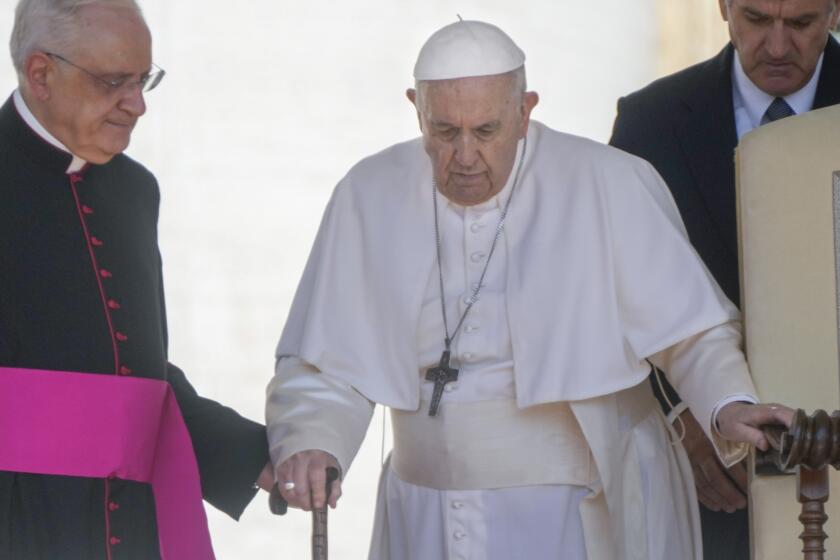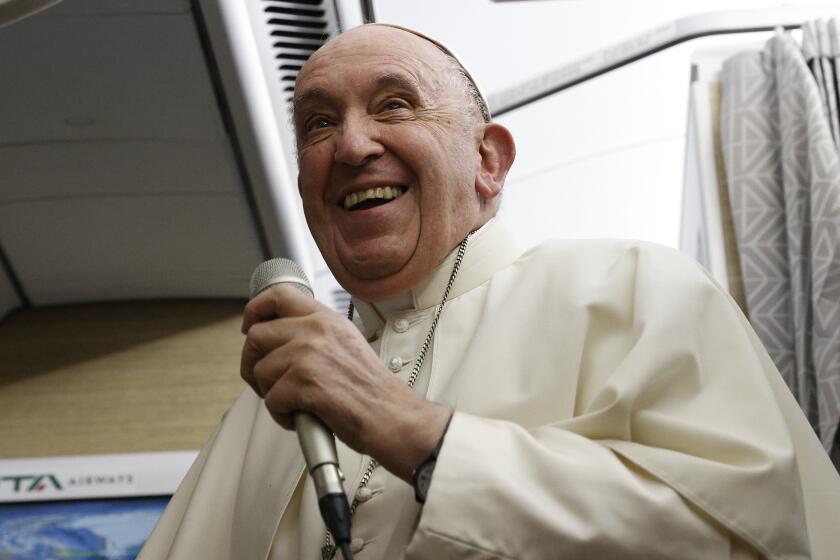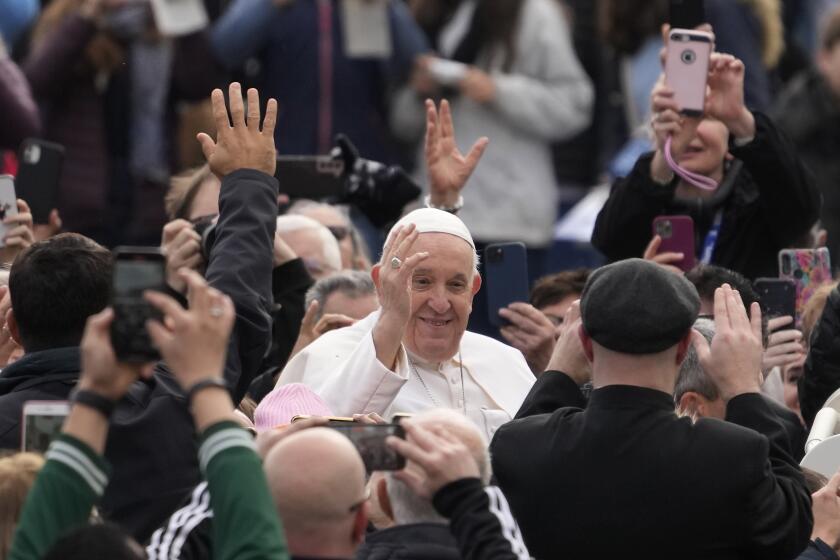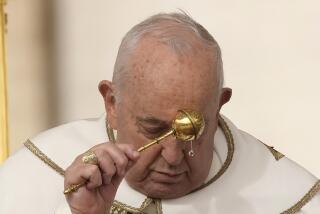Pope in ‘good general condition’ after second intestinal surgery in two years
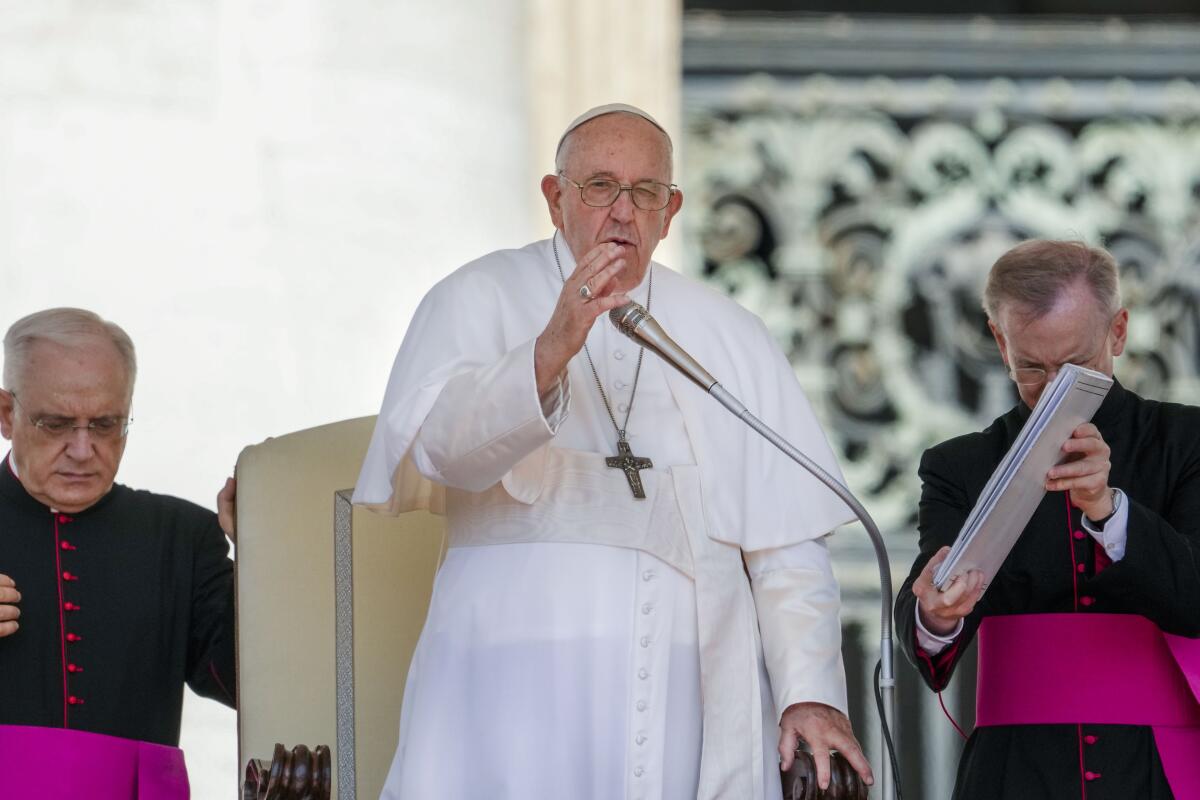
ROME — Pope Francis was in “good general condition” Thursday, alert and breathing on his own, following a three-hour operation to remove intestinal scar tissue and repair a hernia in his abdominal wall, the Vatican said.
The 86-year-old Francis rested “extensively” during a peaceful night at Rome’s Gemelli hospital and was spending his first full day after the surgery observing the “necessary post-operative rest,” the Vatican said in a statement.
“The pope is informed of the messages of closeness and affection that have come in the last few hours and expresses his gratitude, while asking for continued prayers for him,” the statement said.
Francis was admitted to Gemelli on Wednesday for his second major abdominal operation in two years, following a 2021 procedure to remove part of his colon. During the procedure, doctors removed adhesions, or internal scarring, on the intestine that had caused a partial blockage. They also repaired a hernia that had formed over a previous scar, placing a prosthetic mesh in the abdominal wall.
Dr. Sergio Alfieri, director of abdominal and endocrine sciences at Gemelli, said that Wednesday’s operation was successful and that there were no complications or other pathologies discovered. He said that the tissue removed was benign and that, after he recovers, Francis should be fine.
Alfieri revealed that in addition to the 2021 colon surgery, Francis had undergone previous abdominal surgeries sometime before 2013 in his native Argentina, which had also caused intestinal scarring.
The pontiff says he wrote the letter shortly after his 2013 election in case medical problems eventually impeded him from carrying out his duties.
Alfieri, who also removed part of Francis’ colon in 2021, told an evening news conference Wednesday that the pope was awake, alert and even joking. “When will we do the third one?” he quoted Francis as saying.
The pontiff is expected to remain in the 10th-floor papal suite at Gemelli for several days, and all papal audiences have been canceled through June 18.
The operation was scheduled after Francis had complained about increasing bouts of pain and intestinal blockages. After going to Gemelli on Tuesday for checks, Francis was admitted Wednesday following his general audience in St. Peter’s Square and underwent the procedure a short time later.
The surgery was likely scheduled now to give Francis plenty of time to recover before embarking on planned trips later this summer: an Aug. 2-6 visit to Portugal for World Youth Day, an Aug. 31-Sept. 4 trip to Mongolia and a Sept. 23 day trip to Marseille, France.
Pope Francis says he can no longer travel like he used to because of his strained knee ligaments.
A feared protrusion, or bulging of the intestine through the hernia tear, was apparently not found.
“It appears they operated on him in a timely fashion with no compromise to his intestine,” said Dr. Walter Longo, chief of colorectal surgery at the Yale University School of Medicine, who did not participate in the surgery and commented after consulting the Vatican statement on the procedure.
Dr. P. Ravi Kiran, chief of colorectal surgery at Columbia University, said the fact that there were adhesions removed “suggests that the small intestine might take some time to recover.”
“It is good news that bowel did not need to be removed and the surgeon was able to place prosthetic mesh to bridge the defect in the abdominal muscle,” Kiran said in an email. “There is always a risk of mesh infection when placed in a situation such as this, but factors such as any contamination seen at surgery, type of mesh and antibiotics used also impinge on this risk.”
Breaking News
Get breaking news, investigations, analysis and more signature journalism from the Los Angeles Times in your inbox.
You may occasionally receive promotional content from the Los Angeles Times.
Francis remained in charge of the Vatican and the Roman Catholic Church even while unconscious and in the hospital, according to canon law.
In July 2021, the pontiff spent 10 days at Gemelli to remove 13 inches of his large intestine. In an interview in January, he said the diverticulosis, or bulges in his intestinal wall, that prompted the surgery had returned.
Dr. Manish Chand, a professor of surgery at University College London who specializes in colorectal surgery, said the greatest issue post-surgery would be pain management and making sure that the wound heals properly.
“In the first six weeks after this type of surgery, you’re at risk of getting a recurrence again,” he said. To avoid that, patients are advised not to do anything strenuous.
Pope Francis, whose leadership of the Roman Catholic Church has resonated with many Californians, celebrates his 10th anniversary as pope on March 13.
One of the last people to see Francis on Wednesday before he left the Vatican for the hospital was the Rev. Enzo Fortunato, spokesman of the Basilica of St. Francis of Assisi.
“He was very serene, very tranquil, and he encouraged us to go on,” Fortunato recalled. “This really hit me because it means he is not a man who is self-centered but focused on others. We said to him, ‘Courage, and we will support you with our prayers.’”
More to Read
Sign up for Essential California
The most important California stories and recommendations in your inbox every morning.
You may occasionally receive promotional content from the Los Angeles Times.
